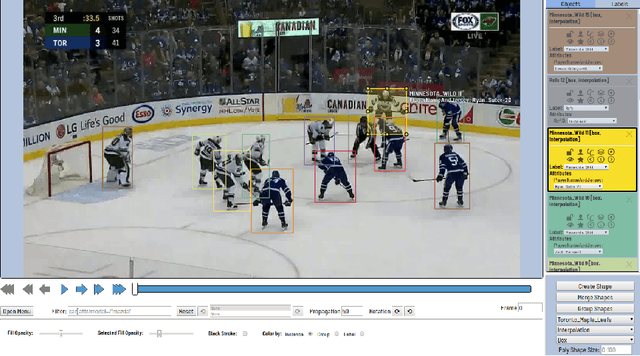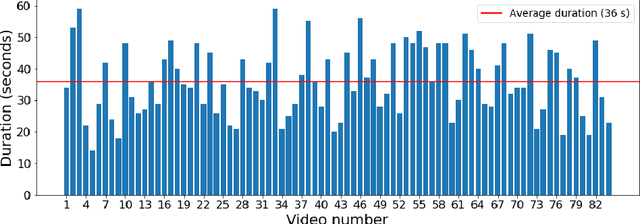Evaluating deep tracking models for player tracking in broadcast ice hockey video
Paper and Code
May 22, 2022



Tracking and identifying players is an important problem in computer vision based ice hockey analytics. Player tracking is a challenging problem since the motion of players in hockey is fast-paced and non-linear. There is also significant player-player and player-board occlusion, camera panning and zooming in hockey broadcast video. Prior published research perform player tracking with the help of handcrafted features for player detection and re-identification. Although commercial solutions for hockey player tracking exist, to the best of our knowledge, no network architectures used, training data or performance metrics are publicly reported. There is currently no published work for hockey player tracking making use of the recent advancements in deep learning while also reporting the current accuracy metrics used in literature. Therefore, in this paper, we compare and contrast several state-of-the-art tracking algorithms and analyze their performance and failure modes in ice hockey.
 Add to Chrome
Add to Chrome Add to Firefox
Add to Firefox Add to Edge
Add to Edge